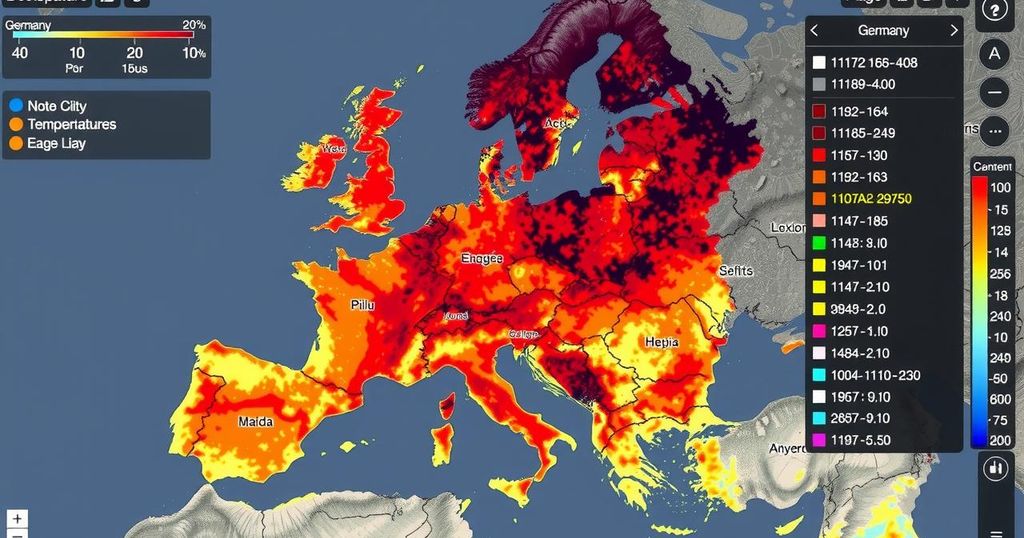Mean Annual Temperature Trends in Germany: 1960-2024

This article presents an analysis of mean annual temperatures in Germany from 1960 to 2024, highlighting increasing temperature trends as indicative of climate change. It encompasses various related statistics, focusing on precipitation, extreme weather events, greenhouse gas emissions, and the country’s response through renewable energy initiatives.
The mean annual temperature in Germany has exhibited notable trends over the years, as indicated in a recent statistical overview spanning from 1960 to 2024. The data showcases a gradual increase in temperature, illustrating the broader impact of climate change in the region. This statistical analysis not only highlights the changing climate patterns but also reflects on significant climatic events and their implications for various sectors, including environmental sustainability and energy transitions. Additionally, the report includes insights into greenhouse gas emissions and protective measures being undertaken across multiple levels of society in Germany.
The report is categorized into various sections, providing detailed statistics on hot days, annual precipitation, and natural disasters, thus offering a comprehensive view of climate-related phenomena. It also outlines the economic impacts caused by climate-related events and discusses the measures being implemented to mitigate these issues. Furthermore, the importance of renewable energy and its increasing share in Germany’s energy mix is explicitly recognized as a critical factor in achieving climate goals and reducing carbon footprints.
Understanding the mean annual temperature in Germany is pivotal for analyzing the long-term climatic trends that have been observed in the region. Historically, data starting from 1960 elucidates significant fluctuations in temperature, correlating these changes with global climate phenomena. The documentation serves to inform policies surrounding climate protection, energy transitions, and greenhouse gas emissions, while highlighting Germany’s response to climate challenges through legislative and societal action. The comprehensive statistical data presented facilitates a thorough assessment of climate impacts, including extreme weather events and shifts in seasonal behavior, providing essential insights for stakeholders involved in environmental management and policy-making.
In conclusion, the statistical data on mean annual temperatures in Germany from 1960 to 2024 underscores the alarming trend of rising temperatures, indicative of the pressing challenges posed by climate change. The report not only reflects historical temperature data but also emphasizes the necessity for strategic climate action in reducing greenhouse gas emissions and enhancing renewable energy usage. As such, the implications of these findings are critical for future planning and sustainability initiatives within Germany, ensuring a robust response to the ongoing climate crisis.
Original Source: www.statista.com








